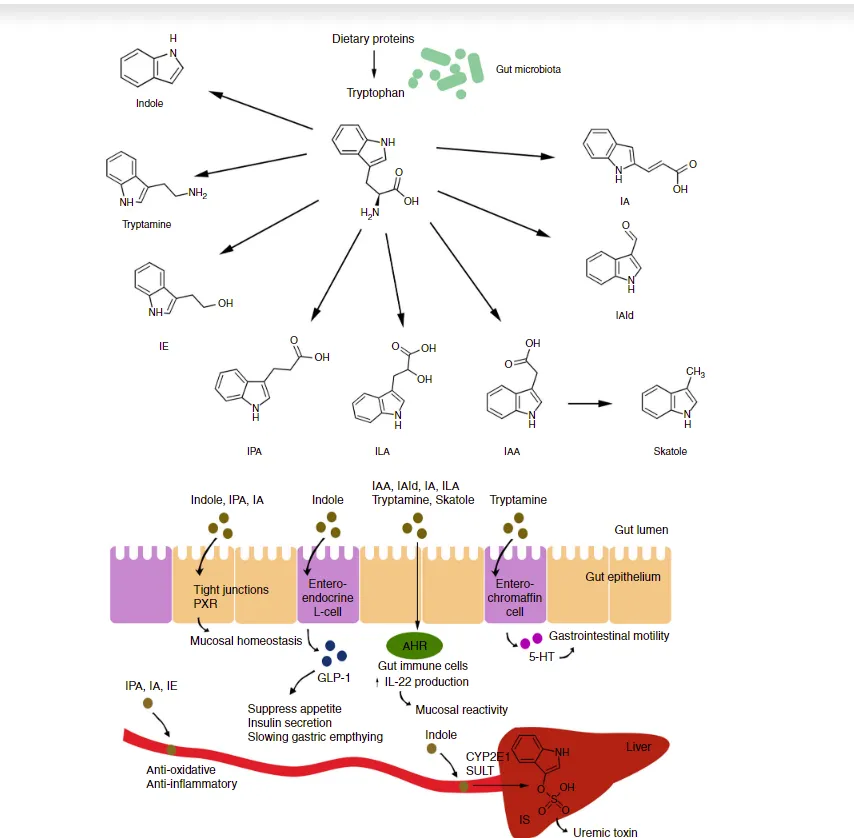Mitochondrial health with Cocoa?
- Adam Rinde, ND
- Feb 10, 2019
- 4 min read

Mitochondrial biogenesis is something that is a hot topic in science. Dysfunctional mitochondria have been associated with many diseases and conditions including diabetes, alzheimer’s disease, sarcopenia, obesity, and heart disease. It makes sense to me that there are four or more really important strategies in life to delay common diseases and issues of aging:
Preserve and build musculoskeletal tissue. which delays diabetes, osteoporosis, heart disease, and obesity.
Preserve cartilage. which delays osteoarthritis and keeps us moving which delays most diseases! This largely involves managing oxidative stress.
Preserve and build functional mitochondrial volume which delays diabetes, heart disease, dementia and more .
Promote neuronal plasticity and neuronal pruning in the brain which delays dementia and alzheimer's disease
Preserve the intestinal barrier and gut microbiome to prevent improper immune system activation which may be involved with autoimmune disease and certain cancers.
Oh that’s it?
Luckily many of these strategies can be supported with diet, quality sleep, lifestyle, and natural nutrient supplementation. If we care anything about living well as we age we should care about anything that supports the function of these key areas.
That brings me to the study I came across while researching metabolic flexibility which is a topic that is largely related to how well our mitochondria are functioning.
The study out of the University of San Diego appearing in 2012 in Clinical and Translational Science consisted of 5 adults who were between 40-74 years old with confirmed stable stage II and stage III Heart Failure and Type II diabetes. They were given four small chocolate squares and two cocoa research beverages for 3 months. This was the equivalent of 100mg of epicatechins and 390 calories and 18 grams of fat. They were measured for HbA1c, lipid profiles, brain natriuretic peptide and muscle biopsies from quadriceps femoris (quadriceps) before and after cocoa consumption.
The results were impressive. Mitochondrial function and biogenesis went up. There wasn’t an exercise intervention so the only thing that changed was this cocoa mix.
The results included:
Modest improvement in High Density Lipoprotein (HDL) (38.2 ± 7.2 mg/dL vs. 44 ± 7.4 mg/dL). It went up 6 points. HDL is good cholesterol and improving it usually helps lowers risk of heart disease.
Modest improvement in Brain Natriuretic Peptide (BNP) it went down by an average of 100 points. When BNP is going up heart disease is getting worse.
No changes in Total Cholesterol, Low Density Lipoprotein, Triglycerides, HBA1c, body weight or blood pressure. It didn't make these factors worse or better.
Mitochondrial Function markers from the muscle biopsy all went up including : Sirtuin type 1 (SIRT1), Peroxisome proliferator-activated receptor gamma coactivator 1-alpha (PGC-1α), Cyclic GMP (cGMP) Neuronal nitric oxide synthase (nNOS) phosphorylated‐Nitric oxide synthase (p-nNOS
Other markers of mitochondrial biogenesis such as Complex 1, Complex V, Mitofilin, and Porin all improved
The study had some limitations in that it was really small (Nof5). There was no control arm and also there was no way to prove it was the epicatechins that increased mitochondrial function and not some other property in the Cocoa. However it was pretty clear this intervention helped.
What does this mean? Should we all go out and take in 100mg of epicatechins from cocoa every day? Is more better? Probably not. However epicatechins might be a great addition to a strength training and endurance exercise routine. I would suggest 2 squares (matchbox size) of the darkest chocolate you can find taken on 3-4 days per week. When I say dark: I mean blackout style chocolate (You’re welcome). Most research says 6.7 grams of dark chocolate per day (1/2 a bar per week) is about the right amount to prevent disease. I am just not big on doing any dietary habit daily as I think being flexible is important. Reportedly the Kuna Indians in panama drink up to 40 cups of cocoa a week!
Where else can you get epicatechins in your diet if you are not drawn to cocoa? Epicatechins are part of a broader form of a category of foods constituents called polyphenols that seem to have major medicinal benefits in our body. Here is a fun database of where polyphenols are found in food. Epicatechins are fairly unique to chocolate however black grapes and blackberries have appreciable amounts
How do you know if your mitochondria need support? There are many levels to this but if you find yourself surviving on stimulants, having poor exercise recovery, addicted to sugar and not able to go long periods without food it might be a clue that your mitochondria need support. There are few lab tests that might indicate mitochondrial dysfunciton COQ10 levels, Adiponectin levels, and Leptin levels. Any one who is insuin resesistant is likely dealing with a mitochondrial issue.
Preserving and growing functional mitochondria is a key strategy to prevent and delay many of the chronic diseases that we face including dementia/Alzheimer, heart disease, and diabetes. As simple as it sounds working out, eating polyphenol rich foods, eating to caloric balance, are great strategies in “minding your mitochondria”.



